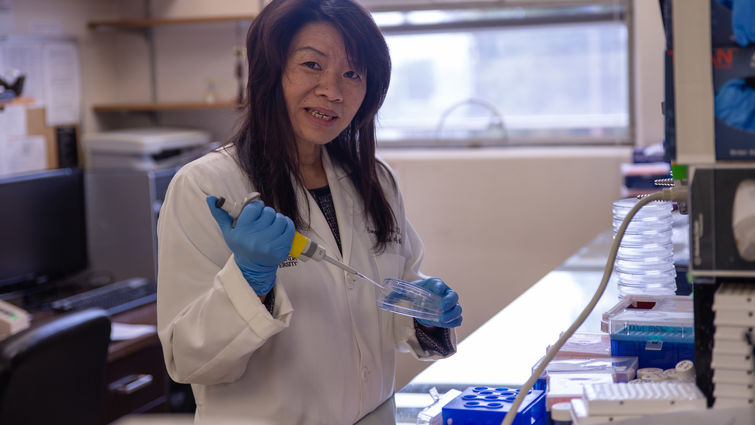
Hongyu Qiu, MD, PhD
The National Heart, Blood & Lung Institute recently awarded Hongyu Qiu, MD, PhD, a professor of Basic Sciences in the School of Medicine, $3.7 million in grant funds to research a recently discovered molecule that plays a protective role against heart diseases.
Qiu’s two grants — $2.6 million and $1.1 million — will be distributed over a period of four and three years respectively. The first grant will focus on investigation of the role of the newly identified molecule, called valosin-containing protein (VCP), in preventing coronary artery heart disease. The second will be used to study pressure overload induced heart failure as a result of chronic hypertension, or high blood pressure.
The funds will allow Qiu to explore the underlying mechanisms brought about by VCP in the cell growth and survival of cardiomyocytes — the muscle cells that make up the heart muscle — under the cardiac stress.
“Cardiomyocytes are very specific,” Qiu said. “Humans are born with a set number of heart muscle cells, or cardiomyocytes. They’re not like other cells, like skin or blood cells where if you lose some they regrow. Once the cardiomyocytes are lost, they cannot be replaced, thus causing permanent damage and leading to heart failure.”
Despite a decades-long decline in the rate of coronary artery heart disease (CAD), the condition remains the leading cause of death in the U.S. Currently, 15.5 million people over the age of 20 have CAD in America.
Using a mouse model, Qiu’s team inserted a gene stimulating the production of VCP, which naturally diminishes in the heart with age and when the heart is under stress. When comparing the study’s mice hearts to those with normal VCP production, Qui’s team found that the mice with elevated VCP levels protect cardiomyocytes against stress-induced death.
Although the research is still far from clinical application, Qiu said the results are promising.
“It gives us an avenue to a future therapeutic drug,” she said.
